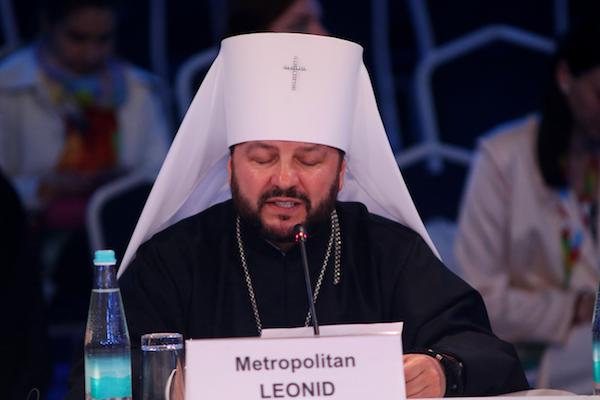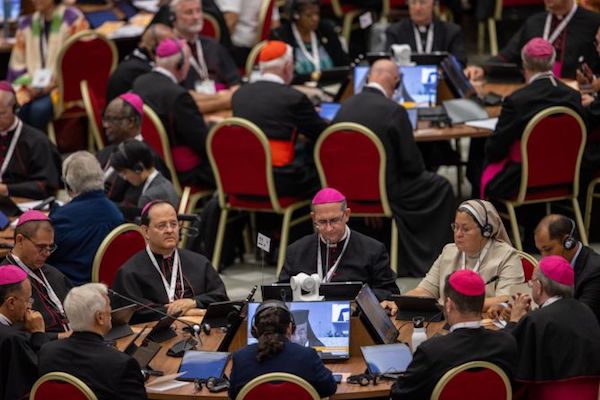The Synod on Synodality began to consider “some of the key points” of contention last Friday, according to its relator-general Cardinal Jean-Claude Hollerich, as he introduced a discussion of “co-responsibility in mission”.
He said that delegates should not “give hasty answers that do not consider all the aspects of these difficult questions”, and encouraged them to follow the structure of the instrumentum laboris: “It’s not good to get lost in the catacombs and it’s not good to get lost in the synod.”
The delegates had the previous day made a pilgrimage to the Roman catacombs, where they each received a copy of the “Pact of the Catacombs” – the pledge made by 42 bishops in 1965 to live like the poorest of their flock – as “meditation material”, the Vatican said.
On 14 October, a 74-year-old Mexican nun became the first woman to chair a session of the Synod on Synodality. Sr Maria de los Dolores Palencia Gómez chaired its Saturday meeting, as one of the nine presidents-delegate equipped to preside in the absence of the Pope.
Sr Palencia, of the Congregation of St Joseph of Lyon, runs a hostel for Latin American refugees in the eastern Mexican state of Veracruz.
She told reporters: “What we are experiencing is a very attentive listening path that echoes the voice of the Holy Spirit.”
She said a woman presiding over the Synod’s work for the first time reflected “a modus vivendi that is making its way in the Church, calling all baptised men and women to co-responsibility and, at the same time, respecting all diversity.”
Sr Palencia added: “Little by little, we shall see changes.”
Vatican reports confirmed that the synod discussed contentious topics such as the role of women and the treatment of LGBTQ Catholics last week, but insisted that while opinions differed there was no “polarisation”.
The assembly also elected seven delegates to the 13-member commission to draft the synthesis report for the synod, including Cardinal Fridolin Ambongo Besungu of Kinshasa, Bishop Shane Anthony Mackinlay of Sandhurst in Australia, and Bishop Mounir Khairallah of the Maronite Eparchy of Batroun.
The commission’s six other members come from the synod leadership and Pope Francis’ personal appointments – the latter including Sr Patricia Murray IBVM and Cardinal Giorgio Marengo, apostolic prefect of Ulaanbaatar.
As the synod entered its third week, several delegates voiced their enthusiasm for the methods of the current assembly. Preaching at a Mass on 13 October, Cardinal Ambongo urged delegates to use “the weapons of synodality” to fight the Devil who “wants to see us divided”.
Cardinal Christoph Schönborn said the synod’s process of “spiritual conversations” had a very positive effect and was “most important”.
In a short video posted online on 13 October, he described the process where each of the maximum ten participants of every group had three minutes to say what they felt was important to them while the others listened. Then there was silence for a while “so that each participant can personally ponder over what was said”.
During a second round each participant described what had moved or appealed to them. Only then was the subject discussed by the whole group. That guaranteed that one really listened and was able to express one’s opinion before the subject was discussed by everyone, the cardinal said.
“The Holy Spirit requires space, silence and mindful listening before the discussions – and perhaps the controversies – begin.”



 Loading ...
Loading ...